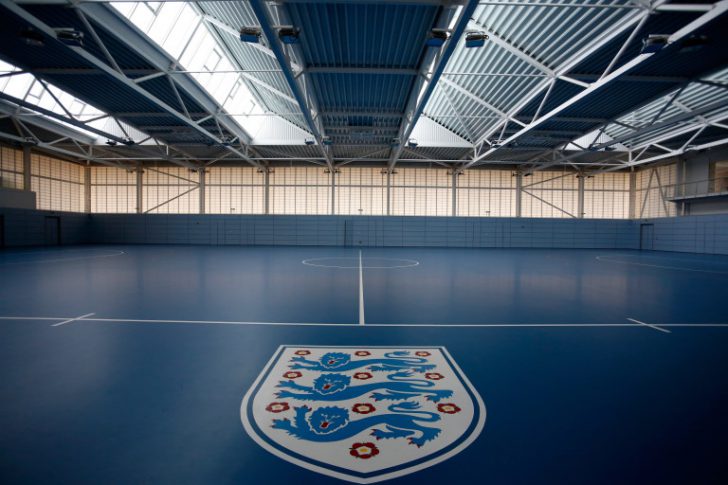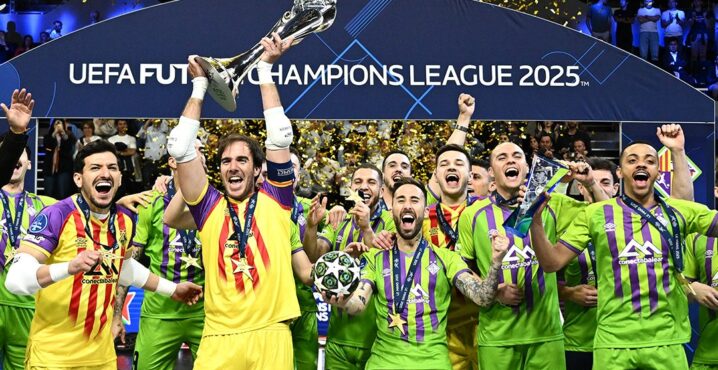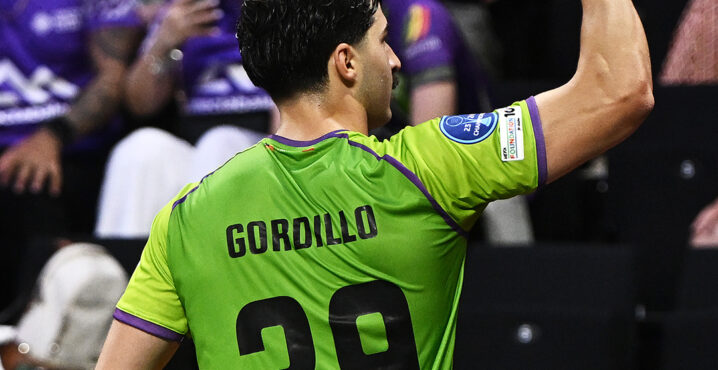Estimated reading time:25 minutes, 55 seconds
English futsal is fascinating, the sport’s development in England has been like riding a rollercoaster. It has experienced so many highs, lows, twists, and turns. This article will review and provide an insight into the history of futsal in England, the problems it has faced but also the opportunities the market has to drive the sport’s development in a positive direction.
(Main picture source: The FA website)
Futsal activity in England goes back to 1983 when a team took part in a Four Nations Tournament in Italy which included Scotland, Ireland, Belgium, the Czech Republic, and their hosts. The first unofficial international match was against Scotland. In 1988 Geoff Payton put a team together of indoor football players to compete in the 3rd FIFUSA World Cup Australia 1988. England finished 12th out of 16. However, England did not take part in the first FIFA Futsal World Cup in 1989.
In 1988, Geoff Payton also organised the Pendle Futsal League and it was based in Colne in the Borough of Pendle in North East Lancashire where English futsal’s roots originated. Geoff had lived and played in Australia for several years. The league continued until 2002 and he was the first to organise a women’s national team which took part in a world championship in the 1996. A group of 21 players from colleges all over the North West had a mere six months to train before going to Australia to compete in the televised 17th Futsal World Championships against experienced players. Team member Sarah Myers said: “Everyone really enjoyed it. Although we didn’t win, it was good experience, and it hasn’t put us off competing again.” The league sent representative teams to compete all over the world. It has also hosted tournaments with teams from Gibraltar, Australia, and Canada. He also tried to create an association and felt the English FA would only take the sport seriously once he had done so and he looked to get the organisation recognised by FIFA in the 90s as well.
In 1997/ 1998, Simon Darcy Clifford established the Brazilian Soccer School UK Confederation of Futebol de Salão to raise awareness of the sport. In May 2000, a team participated in the Genk International Futsal Tournament (Belgium). John Warnock received the invitation and Mark Potter (a pioneer of Scottish futsal) took a team combining English and Scottish players.
As you can see what started with those passionate about the sport and travelling to mainland Europe or around the world to take part in tournaments, progressed to organised efforts to increase awareness of the sport. And attempts to engage with the English Football Association (FA) in order to encourage the association to recognise the benefits of futsal and to invest in the sport’s development.
The Pendle Futsal League finished in 2002 but a Grimsby Futsal League was founded the same year by Kevin Bryant and later, in the summer of 2002 a tournament was played in the Wirral, a metropolitan borough of Merseyside, in the Northwest of England. In October 2002, the first international tournament in England was held in Chester, the British Isles Nations Futsal Cup. It was hosted by Tranmere Victoria, with four other teams representing Ireland, Scotland, Northern Ireland, and Gibraltar.
Tranmere Victoria also raised money and dug deep into their own pockets to invite Iran to England for a friendly match which the FA attended at the Oval Sports Centre, Old Chester Road, Wirral. Some argue this was the event that changed everything for English futsal and due to its importance, Futsal Focus organised the World’s First Futsal Business Conference in partnership with Tranmere Rovers FC in the Wirral in 2017. It was a surreal moment for me, knowing that history had just been made for the sport of Futsal with representatives from around the world taking part
Furthermore, I always wanted to recognize the contribution of Tranmere Victoria Futsal Club to British Futsal development, and it was a pleasure to present Geoff Hughes, founder of Tranmere Victoria with a Futsal Development Recognition Award at the conference. You can read more about this event in the related article link below. In the summer of the same year, former England Futsal International Doug Reed organised a Futsal Insights Seminar as well and was assisted by Manchester Futsal Club. They followed this seminar with a conference in 2018.
Related article: The success of the Futsal Focus Business Conference 2017
In November 2002, an English Futsal Championship tournament took place and was won by Pendle Santos. Two weeks later a pilot national tournament was organised by the Sheffield Hallamshire FA. Ten teams took part and there was also a women’s invitation match. Tranmere Victoria won the tournament and as a result, was later chosen by the FA to be the first team to represent England in the UEFA Futsal Cup (now known as the UEFA Futsal Champions League). Both the FA and FIFA had representatives at the tournament, there were also members of the British Universities Sport’s Association (BUCS) present (now the largest futsal competition in the United Kingdom).
The future of futsal in England was discussed and the FIFA representative stated that they would support the FA in developing the refereeing and coaching programmes necessary for the development of the game in England. The possibility of establishing a national team was also discussed.
In early 2003, it was revealed that the first official national cup was to be organised by the FA and would take place during the summer. Regional qualifying leagues were set up independently of the FA in Sheffield, Pendle, Wirral, London, Cheltenham, and Grimsby, with the winners and runners-up qualifying for the FA Futsal Cup. Prior to the tournament was the 2003 London Cup. The first FA Futsal Cup took place in July at the Army Physical Training Centre in Aldershot, with teams divided into two groups of six. An invitation was also extended to an Army team, the Army Football Association. Sheffield Hallam won the cup and would enter as England’s representatives in the 2004–05 UEFA Futsal Cup. In 2003, an England select team travelled to their first world championships as a pilot for an international competition. Up against experienced sides, a team of semi-professional and university players took part in games against Iran, Uzbekistan, and Indonesia.
In November 2003, the Futsal England Trophy was organised by Futsal England (no longer exists in its former structure – a new unrelated entity exists called England Futsal and was recently established) and sanctioned by the FA, in Cheltenham. The best futsal teams in England at the time were involved as well as teams from Spain, one team from Canada and one from Moldova. Sheffield Hallam won the tournament and became the first team to win both of the domestic titles at the same time.
In December 2003, the first manager of an England National Futsal team was Graeme Dell (now the Chairman of the FA Futsal Committee, the Futsal representative on the FA Council) who put together an initial squad of 25 players selected to take part in a four-day training weekend in Lilleshall, in preparation for the qualifiers for the 2005 UEFA Futsal Championship.
The first national league took place in 2006, the Futsal Premier League. Gary Macbeth, a London-based futsal supporter, Mark Potter (Scotland) and Kevin Bryant organised seasons one and two of the Futsal Premier League (FPL). 2006 FPL winners Doncaster Deaf College became the first disability team to reach the qualifying stage of a major European competition. This league was the forerunner to the FA National Futsal League which was organised two years later in 2008. You can read more about English futsal history during this period via the link below:
Related Link: England Futsal History pdf created by Grimsby Futsal
I remember being in England at this time, I was living in Liverpool, and I had organised a futsal team in Southport called the YMCA Hurricanes Futsal Club which took part in the FA Futsal Fives League in Croxteth, a suburb of Liverpool, Merseyside. There was a lot of excitement in the air and anticipation for what the future may hold for the sport, but also suspicion and fear that the FA wouldn’t take the sport seriously enough and wouldn’t provide it with the support the sport would need to flourish in England.
Here is the point that I would argue that the control system for the metaphorical rollercoaster was turned on. Since 2008, fingers have been pointed in many directions as to what the problems are in English futsal, and why the sport hasn’t progressed to the same extent as other nations. The FA has been accused as the main culprit, then people in positions of influence (link to but outside of the FA, people who consider themselves gatekeepers), certain clubs, and coaches, and what inevitably happens in human nature, cliques. However, in fairness to English futsal, this is not unique to England, this happens around the world, especially at an amateur level.
Leagues
Over the years, the national league structure and pathway have taken different structures. The original national league was superseded when a new competition was formed called the FA National Futsal Series (NFS) which became the top tier. The new competition and, particularly, its format, wasn’t supported by everyone resulting in a separate organisation being established and sticking with the original name, the National Futsal League (NFL). The league’s club members wanted to stick with the old league format of home and away games rather than the central venue model adopted by the NFS.
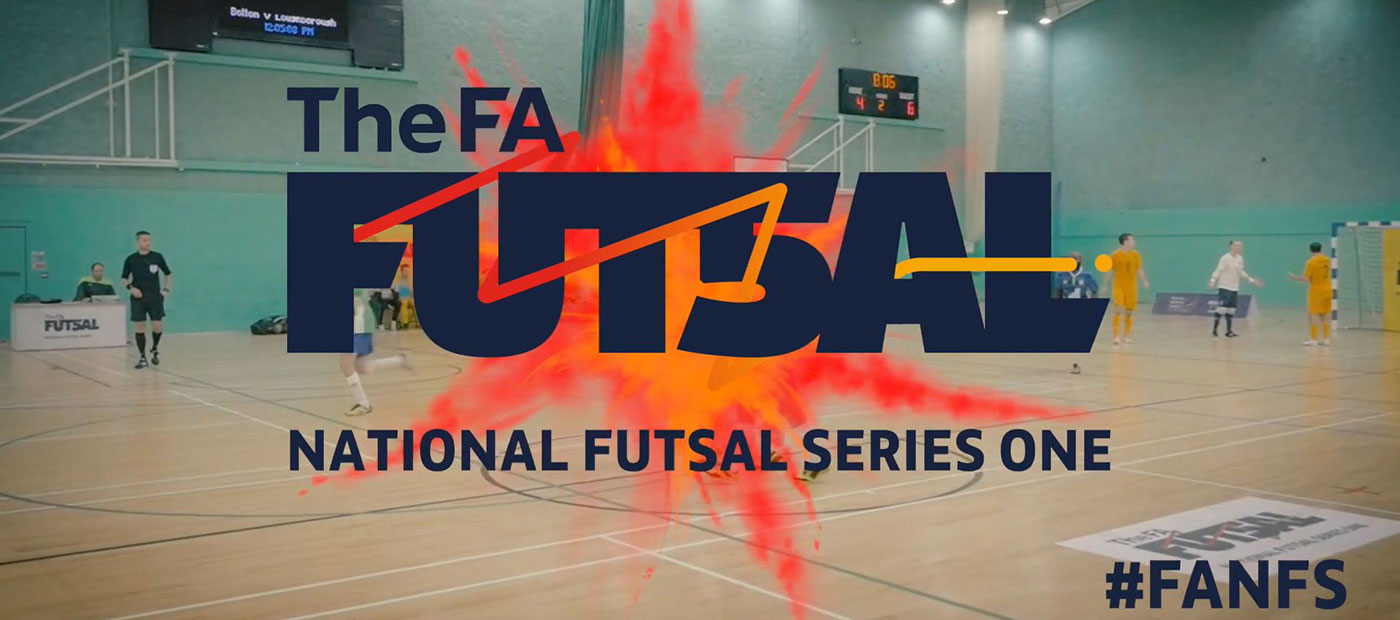
Source of the picture: The FA website
After these identities split, it took a while for both to re-align. Led by Peter Sharples, the NFL developed a partnership with the Liga Nacional de Futbol Sala (LNFS) in Spain, renaming itself as LNFS England. The LNFS were and are in a political battle with the RFEF in Spain for control of professional futsal, a battle they look set to lose, at least for now. However, at this time, this partnership led to the LNFS England being kicked out of the FA Futsal League pathway, and so began the political battle between both entities. But, a battle, which in the end worked in the sport’s favour.
The establishment of LNFS England meant the NFS had to improve their league participation offering. Yes, the NFS had the advantage of having the entrance slot to the UEFA Futsal Champions League. But for amateur clubs especially those new to futsal, the offering that the LNFS England was developing also included trips to Spain. The organisation announced this development to aid their own club members called the Anglo-Spanish Tournament which would have been an annual event. This was going to take place in Spain at the end of each season between two leading Spanish futsal teams and the winners of the LNFS England Premiership North and Premiership South competitions.
The four teams, two English and two Spanish, would have played in a round-robin tournament over a four-day weekend period, with practical workshops and coaching sessions between matches that would have been open to junior and adult members from any LNFS England club. These matches were intended to be a part of the journey for LNFS England and allow them to establish a baseline from which to measure the progress of their clubs on the court over the coming years. Media representatives would have attended the tournament and all matches were going to be filmed and broadcast.
There was also the opportunity to focus on building their home support and on the development of their own clubs and the chance to work with the LNFS to improve the league and their clubs etc, which was very tempting. I know because I had more than a few clubs contacting me, asking which league they should consider entering. But the FA NFS announced that their league, which had been suspended due to covid, would be decided with an end-of-season event that was going to be broadcast live on BT Sport. Due to the success of this event, BT Sport and the NFS agreed on a three-year broadcasting deal that would see select games broadcast on BT Sport. You could argue that this development would never have come about had LNFS England not occurred and forced the NFS to improve their product offering. The BT Sport deal give English futsal an opportunity to increase awareness to a level the sport had never known before domestically. Soon after this, the LNFS England deal fell apart with the LNFS, for reasons we do not know, and they returned to their original name, NFL. The NFL began negotiations with the FA that saw their league reinstated as the third level of English Futsal.

Source of the picture: Facebook
International Futsal and futsal development
In 2020, another war was about to take place directly with the FA Executive who decided to cancel all the England National Futsal teams and severely reduce the budget for futsal. A decision that still hasn’t been reversed although England U19s recently competed in the UEFA Futsal Euro qualifying under the organisation of England Futsal.
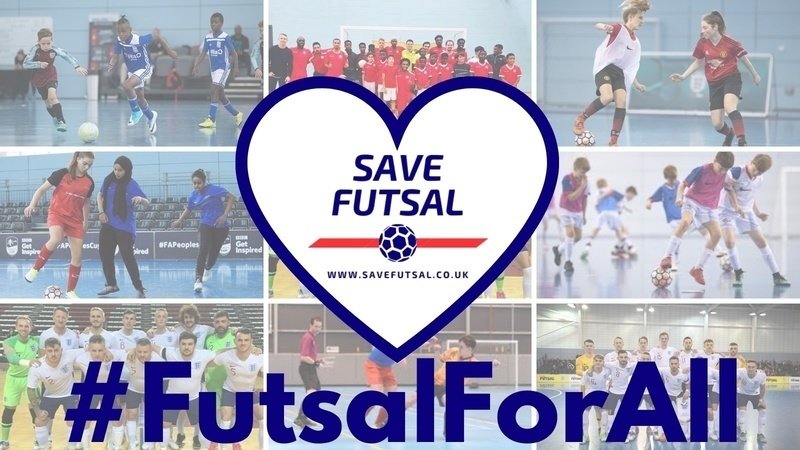
Source of the picture: Petition for Change website
The Association decided to cut funding for grassroots futsal and for their elite futsal programme which caused an incredible emotional reaction domestically and internationally. The FA’s decisions were called an attack on the sport. A campaign called Save Futsal was launched and received TV, and radio coverage, in England and abroad as many feared for the future of English futsal. And 5 years before this, in 2015, some of these fans were cheering on their national futsal team at the London Copperbox Arena. The match was against Sweden and attracted a record attendance for the sport on home soil with 1,430 fans. The team made amends for their opening match defeat against the same team, 3-1, and won the second match, 7-3. Luke Ballinger scored a hat trick and became the first futsal player in the Three Lions shirt to pass 50 career goals.
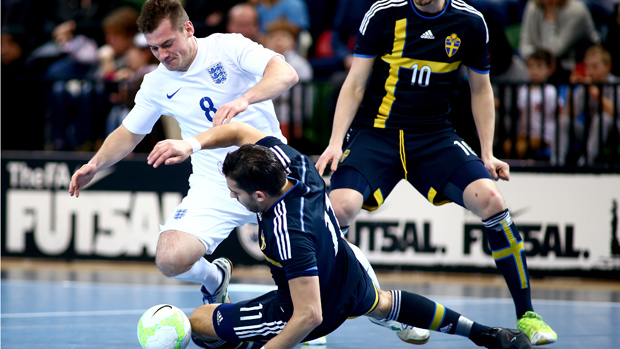
LONDON, ENGLAND – FEBRUARY 28: Futsal International Tournament at The Copper Box on February 28, 2015 in London, England. (Photo by Jordan Mansfield – The FA/The FA via Getty Images)
The BT deal helped to temper the flames of anger, frustration, and fear with a degree of optimism. However, after one year the deal was nearly cancelled. The broadcaster tried to pull out of the deal but through negotiation, the deal was kept, year two has ended but what will happen after next season, is still up in the air.
Another disappointing factor has been the failure of the NFS to take advantage of the new levels of awareness and interest in the sport derived from BT Sport broadcasting. The league’s YouTube has only 2,530 followers, Facebook has 2,900, Twitter 4,828 and on Instagram, 4,560, as well as the majority of games only attract a handful of people to watch inside the venues. Therefore, there has been a clear failure to direct content consumers to their own platforms to increase their engagement and value and to attract more people to attend games. The lack of following is due to the lack of distinct or new content or evidence of a strategy to build the sport’s fanbase.
Many clubs have failed to do the same but this is understandable due to their amateur status. But, why the league didn’t develop a strategy to take advantage of the increased exposure for their own benefit is unknown. Should BT Sport pull out after the three-year deal, where does the FA National Futsal Series find value to attract the needed sponsorships to progress their league.
2023
In 2023, arguably, the biggest event in English futsal history took place in April, when friends of the famous Brazilian coach Marquinhos Xavier were privileged to be able to bring him, his national team, and his staff to High Wycombe for a training camp prior to their international friendly matches with Spain.
Leandro Afonso (Leo) and Andrew de Santana managed to include in Brazil’s training camp a week-long celebration of futsal through coaching workshops and an exhibition match. The exhibition match was initially supposed to be an All-Star team of talented players from across many clubs among them a deaf player as well. However, according to our sources, the event organisers didn’t secure the match sanctioning in the time frame needed before the event was set to occur, therefore, sanctioning was either not given or it was pulled 10 days before the event date leaving little time to resolve the problem that could have been addressed two months prior when the powers that be knew the event was taking place.
So, it seems this was a clear attempt to have the event cancelled, but this action led to negotiations and saw a team made up of Helvecia players competing against the 5 times world champions instead. None of the organisations seen as the main custodians for the sport (the FA Futsal Committee, NFS, England Futsal etc) attended (except for the NFL) to welcome the Brazilian National Futsal team. However, despite these setbacks, a capacity crowd of 600 people attended the occasion, even Tottenham Hotspur players Richarlison, Lucas Moura, and Emerson Royal took time out of their busy schedules to attend and brought their families and friends, and to top it off Brazil has confirmed that they will return next year.
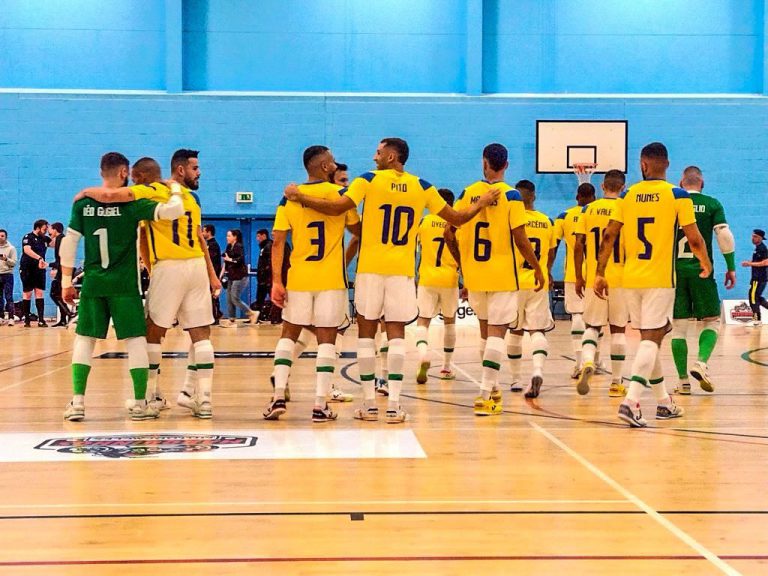
Source of the picture: Mary Pacitti
However, the actions of the custodians have upset a lot of people, one in particular was Mary Pacitti, a UEFA B Futsal Coach from Chiltern Futsal and Chair of the Hertfordshire FA Women and Girls Committee, who spoke to Futsal Focus after the event. Here are some extracts from the interview:
“Our community needs good leaders and events like this to unite us all and to grow our sport in England. On the day it was extremely well organised and produced as an event with ticketing, live streaming and commentary from Isaac Barrington who usually does the NFS games on BT Sport. I am aware that there has been misinformation shared about the sequence of events leading up to the game which is strange. We should all be working towards the same goal of improving futsal. There is no doubt that having the 5-time world futsal champions in England for a week was an amazing opportunity that should have been grasped by all of the futsal stakeholders in England.”
“I was disappointed that the organisations, who are the custodians of our sport in England and are supposed to be championing and pushing the development of futsal here, decided not to attend nor even acknowledge the event, before or afterwards. The FA Futsal Committee members never attended the event to welcome the Brazilian National Futsal team, neither did the FA National Futsal Series (whose champions were playing Brazil) nor did England Futsal, the new entity recently established by the FA to lead and promote Futsal in England.
I would have loved to have had those who represent the community be there to give due respect to our incredible visitors. I still don’t know why this happened, but whatever their reasons are, working together with the event organisers, a solution to whatever problems there was (if there was any credible problem) should have been found in the interest of our sport.”
“I believe our sport has been held back. We keep having to fight for equality with men and oddly women’s futsal is still criticised for being behind and ‘lacking commitment’. The reality is that we are just lacking opportunities to start young and have a smaller group of players to call on while being offered no choice but the same format to compete in as men as if we are being set up to fail.
And we still must wait until those men in charge say we are good enough to get a women’s national futsal team.”
“In a sport that takes so much love, time, and money to make it actually happen, we the people (men and women) need a chance to influence the future and be enabled to work towards the futsal developments and standards in countries like Brazil and Spain among others. It feels like power is reserved for people who aren’t managing that power fairly, with respect, and with true leadership. It also concerns me, in respect of the FA’s diversity policies that there are no female representatives/ leaders on the committees of any of the custodian organisations and these leadership groups do not reflect the diversity of the futsal community.”
You can read more about this event and the interview with Mary which also includes Doug Reed in the related article link. The event was challenged due to match sanctioning guidelines but let’s have a look at this. The rules of match sanctioning to allow or cancel an event are set by UEFA’s regulations and guidelines to provide a framework for how match sanctioning should be applied. But each member association has some flexibility in how they interpret and enforce the rules based on their own legal and cultural context.
Related article: A look back at Brazil national futsal team’s visit to England
Although, I am aware that UEFA has the power to investigate and sanction member associations who fail to properly enforce their rules, or who act in a manner that is contrary to the principles of fair play and integrity in football/ futsal. But I can’t see UEFA sanctioning the FA for allowing an All-Star team that included a deaf player, to play a friendly exhibition match in front of a small crowd of 600 people with the Brazilian national futsal team as part of their training camp. UEFA would tell the FA to act in what they feel is in the best interest of the sport. I don’t understand why the FA would see this opportunity as not in the best interest of English futsal and the sport’s development. And why they didn’t do everything in their power to facilitate this event and welcome the 5 times world cup winners.
FA National Futsal Series Final 2023
This article is titled ‘Has the pendulum swung in English Futsal?’ and the reason for this concerns this year’s FA National Futsal Series Finals. Competing in this year’s men’s final are Manchester Futsal Club and Bloomsbury Futsal, two clubs that would be considered the best-run clubs in England. In the women’s event, London Helvecia takes on Bloomsbury as well.
Manchester Futsal Club is one of the original participants of the FA National Futsal League in 2008 and has been a leading development club ever since with both men’s and women’s teams as well as academies for both.
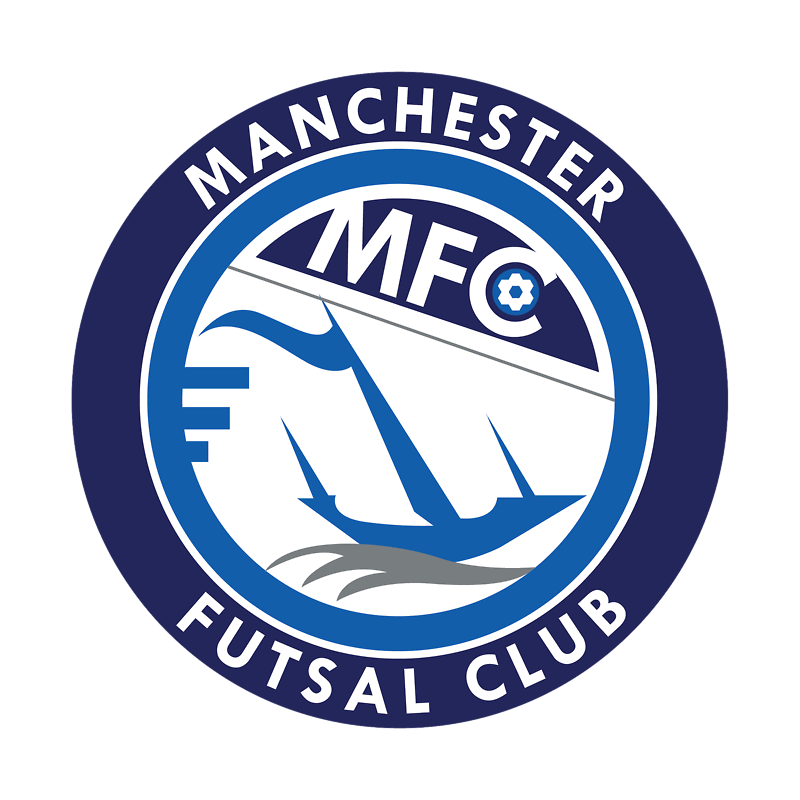
Source of the picture: Manchester Futsal Club Facebook page
Their squad for the final includes many players introduced to futsal as young children by the club and developed over many years by current first-team coaches Sam Richardson and Ilya Ovechkin. They have been an example in the country for their structure, professionalism, and content. However, until now, they have not won the league with their only title coming in the FA Futsal Cup in 2011. Unfortunately, The FA Futsal Cup no longer exists, this was a wonderful tournament for the sport and helped to be the first stepping stones for many clubs into the national futsal league when they were considering their first steps into futsal which this competition helped with. The NFS and its club members should consider lobbying the FA to bring back this competition if they are not already. You can read a Futsal Focus interview with one of the club’s co-founders Simon Wright via the related article:
Bloomsbury Futsal were previously known as ProFutsal London, the former joined Bloomsbury Football Foundation and became the entity’s futsal branch. Bloomsbury Football Foundation is a registered charity, powered by visions of social cohesion, equality of opportunity and sporting excellence, using the power of football to improve the lives of young people. Bloomsbury ensures every child has the opportunity to play football irrespective of their background or financial circumstance, utilising bursary schemes to offer sustainable programmes that support active lifestyles, promote positive impacts and pursue full potential.
When the amalgamation was announced, Bloomsbury Futsal said, “ProFutsal joining Bloomsbury Football means grassroots Futsal is becoming accessible to all in the capital. We want to be the go-to place for the provision of Futsal in England and the South – for technical and tactical content but importantly to use the game to break down barriers and use Futsal to develop better people; to deal with failure as well as success.”
“We want to reach as many children in North London as possible and expose them to the game of Futsal, for the recreational to the more advanced and elite player. We’re keen to work with local boroughs to deliver Futsal and make sure that for all children barriers are removed so they can receive the best experience and provision.”
They have demonstrated a very serious approach to development, both on and off the pitch, and their growth as a club is evident. Like Manchester, they have not yet won a league title but with both women’s and men’s teams in the finals, they will be very hopeful that this will not be the case much longer.
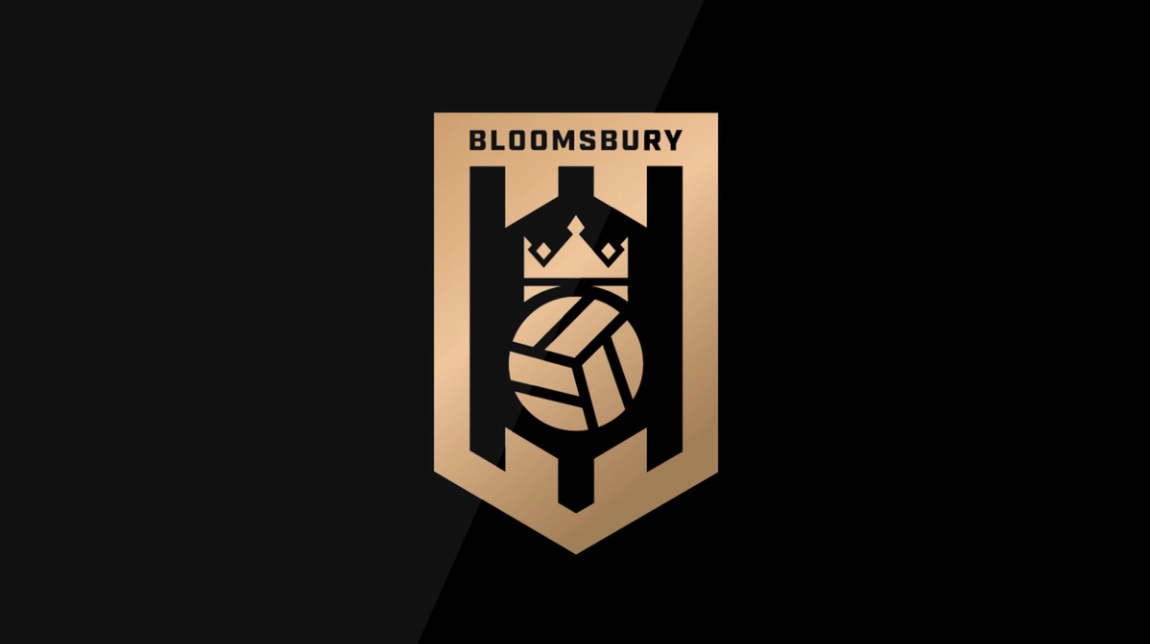
Source of the picture: Bloomsbury Facebook page
The other finalist, Helvecia, has had incredible success winning more titles than any other club, with both men’s and women’s teams lifting national championships. However, despite many years at the top on the pitch, there has been a notable lack of club development in other areas with no prominent academy or marketing efforts. The club has also failed to progress past the preliminary round of the UEFA Futsal Champions League.
During last season, they were taken over by a digital content producer and influencer with regular behind-the-scenes videos being released. It is expected that the club will now evolve and become more than a title-winning team.
Clubs are always the key to the development of a sport. They are the ones that provide the ‘product’ at the elite level and give participation opportunities at the grassroots. Whilst they and the sport have lacked the support or interest of the national governing body at the scale needed, it is hoped that the clubs’ continued development and improved structures will drive English Futsal into a new era and start to fulfil some of its huge potential.
Going forward
Efforts to organise the development of clubs have been made before through the establishment of the English Futsal Club Association. The entity was originally established by a group of clubs wanting to bring all the clubs together under one umbrella. The goal was to provide the clubs with a voice and represent them and support the development of futsal throughout the community. Unfortunately, this project didn’t go much further than a number of surveys, the association failed to receive the active support needed from the clubs, and many believe this was due to the powers that be refusing to recognise the new entity, so it hasn’t gone much further. However, I hope this project is not dead in the water, and the clubs will come together and make this work and reapproach the FA Futsal Committee to get this organisation recognised and a place on their committee.
Another approach to consider is for the FA National Futsal Series to organise club development workshops throughout the year which clubs must attend. It should be a part of the promotion criteria that clubs attend these meetings. The meetings would be led by specific consultants/ experts in various development criteria, and it would be an opportunity for clubs to share best practice projects that have worked for them. Clubs should cover the cost of this through their league memberships. Collaboration with the NFL should also be discussed so criteria are applied to their divisions as well in order for clubs to be at a development standard to secure promotion from the third tier to the second tier and onwards through the NFS standards.
The power is truly in the hands of the clubs by developing themselves and not looking constantly to the FA for support, this was also stated by Peter Steen, Chairman of Hjørring Futsal Klub in Denmark, in an interview with Futsal Focus, when he said:
“On the pitch we are enemies but outside of the pitch we must help each other. It is in everyone’s interest that we succeed because if clubs fail, who will we play? It will also make it easier for the Danish Football Association (DBU) to pay more attention to Futsal if they feel the clubs are doing more to develop themselves and not relying on them.”
Related link: Hjørring Futsal Klub, the perfect example of professional amateurism
Other issues that need to be addressed are in relation to the FA’s diversity policies. There are no female representatives/ leaders on the committees of any of the custodian organisations and these leadership groups do not reflect the diversity of the futsal community either as mentioned by Mary Pacitti. A women’s voice is needed especially now that FIFA has confirmed that they will organise a FIFA Women’s Futsal World Cup and England Futsal was quoted in a Guardian article as intending to start a women’s national futsal team plus for the growth of the Women’s Futsal Super Series. Who better to drive these developments than female administrators and coaches passionate about the sport who should be supported, encouraged and recruited into the custodian organisations. Such actions would give them a voice and influence in the future development of the women’s game.
Author of interview
Stephen McGettigan was born in the Republic of Ireland but grew up in Belfast. He is the founder of Futsal Focus, a Football Industries MBA graduate from the University of Liverpool Management School, and he has worked in the Football and Futsal industries for 15 years.
Futsal Focus
You can read more articles about domestic futsal by going to the top navigation bar or by clicking here
If you like this article and would like to keep updated on Futsal news, developments, etc then you can now follow Futsal Focus via Google News by following our page which will send you an alert as soon as we publish an article so please click here and follow us on Google.
You can also keep updated on Futsal news, developments, etc then please submit your email below in the Subscribe to Futsal Focus option.
Follow Futsal Focus by clicking on Facebook, Twitter, or Instagram or on the social media buttons on the website.

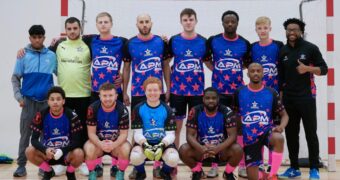



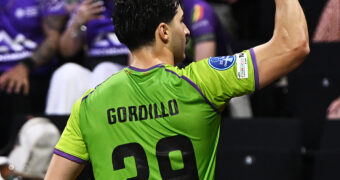
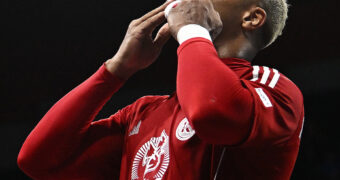
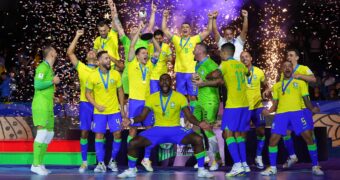

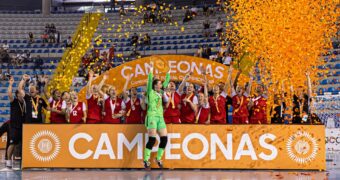
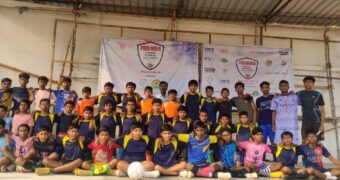





![Validate my RSS feed [Valid RSS]](https://www.futsalfocus.net/wp-content/uploads/2020/01/valid-rss-rogers.png)

